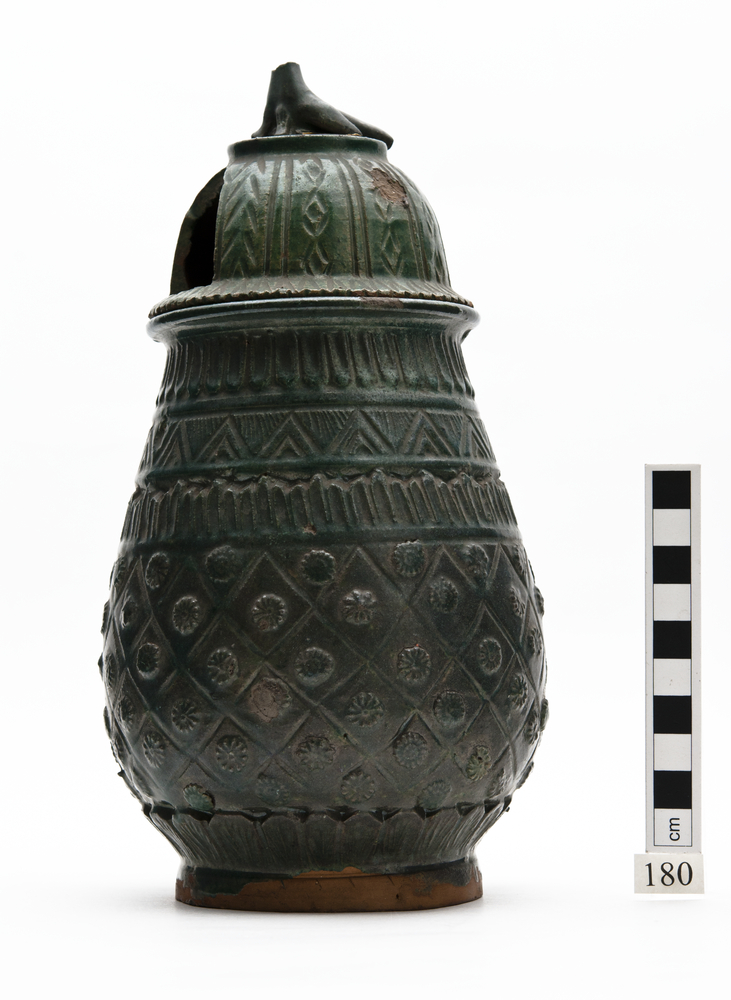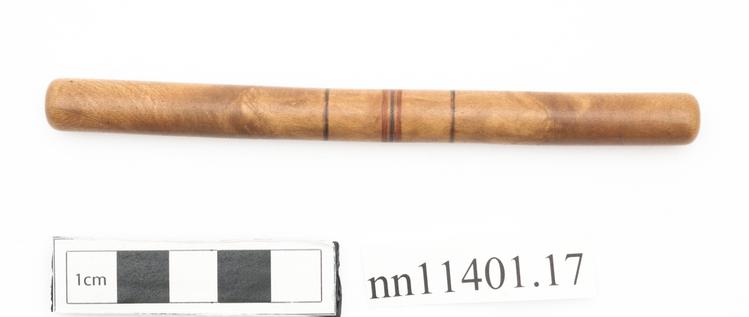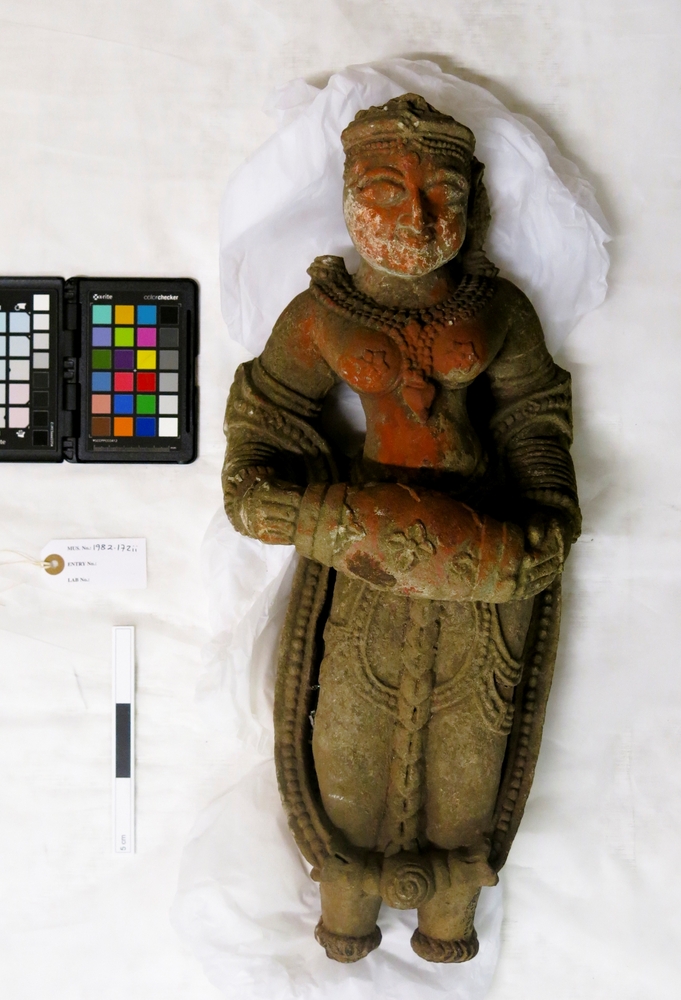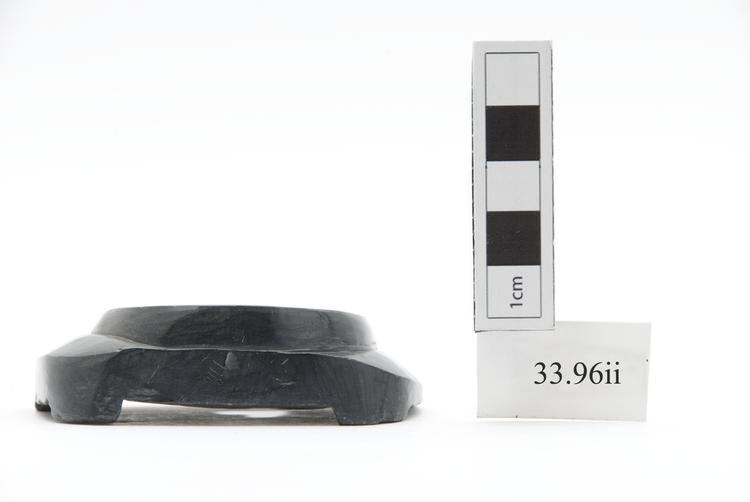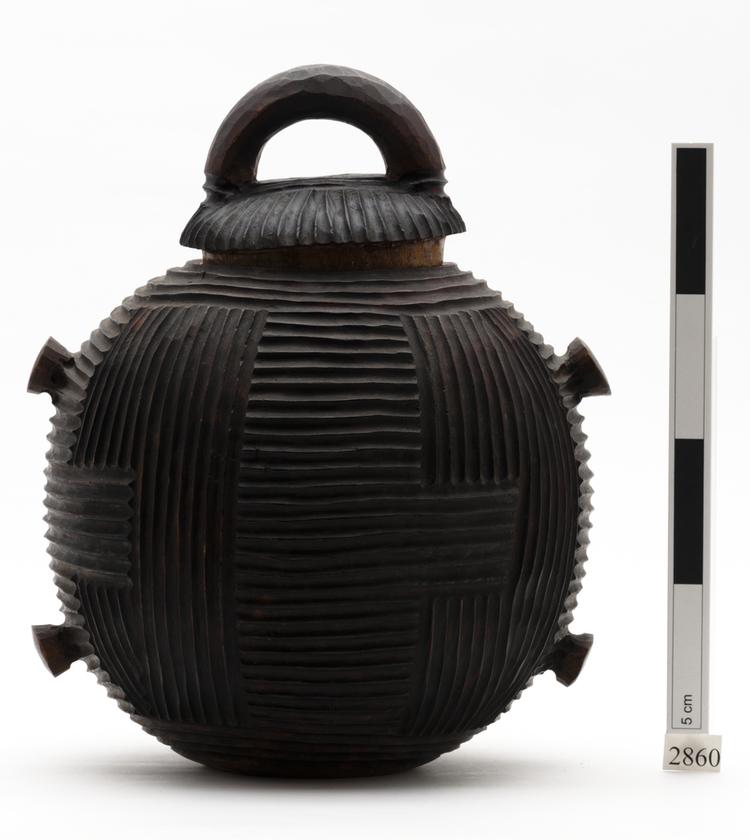
Spherical lidded wooden bowl decorated with carved patterns of vertical and horizontal lines.
This carved wood vessel, like 2859, is part of a corpus of wood vessels usually described as Zulu milk or beer pots. In form these (usually lidded) vessels vary, although typically they are skilfully, even virtuosically carved with highly patterned, darkened surfaces. The lids, where present, are now often ill-fitting, probably owing to distortion caused during drying (the vessel and lid having been carved in the 'green' state). The vessels usually display little, if any, signs of use, suggesting that they were made for sale to non-indigenous patrons. 'Mainly due to their lack of visible signs of use, there is some uncertainty as to whether or not this genre of vessel, referred to inconsistently in early sources… as milk pots and also as beer pots, has any pre-colonial precedent or function. Nettleton has pointed out that these (usually lidded) vessels, possibly based on the form of smaller snuff containers for indigenous use, are now generally thought to have originated in mid-nineteenth-century Natal' (ie the British colony of Natal as opposed to the Zulu Kingdom, which was independent prior to 1879) (Elliott, Cartwright and Kevin, 2013, p 19).



